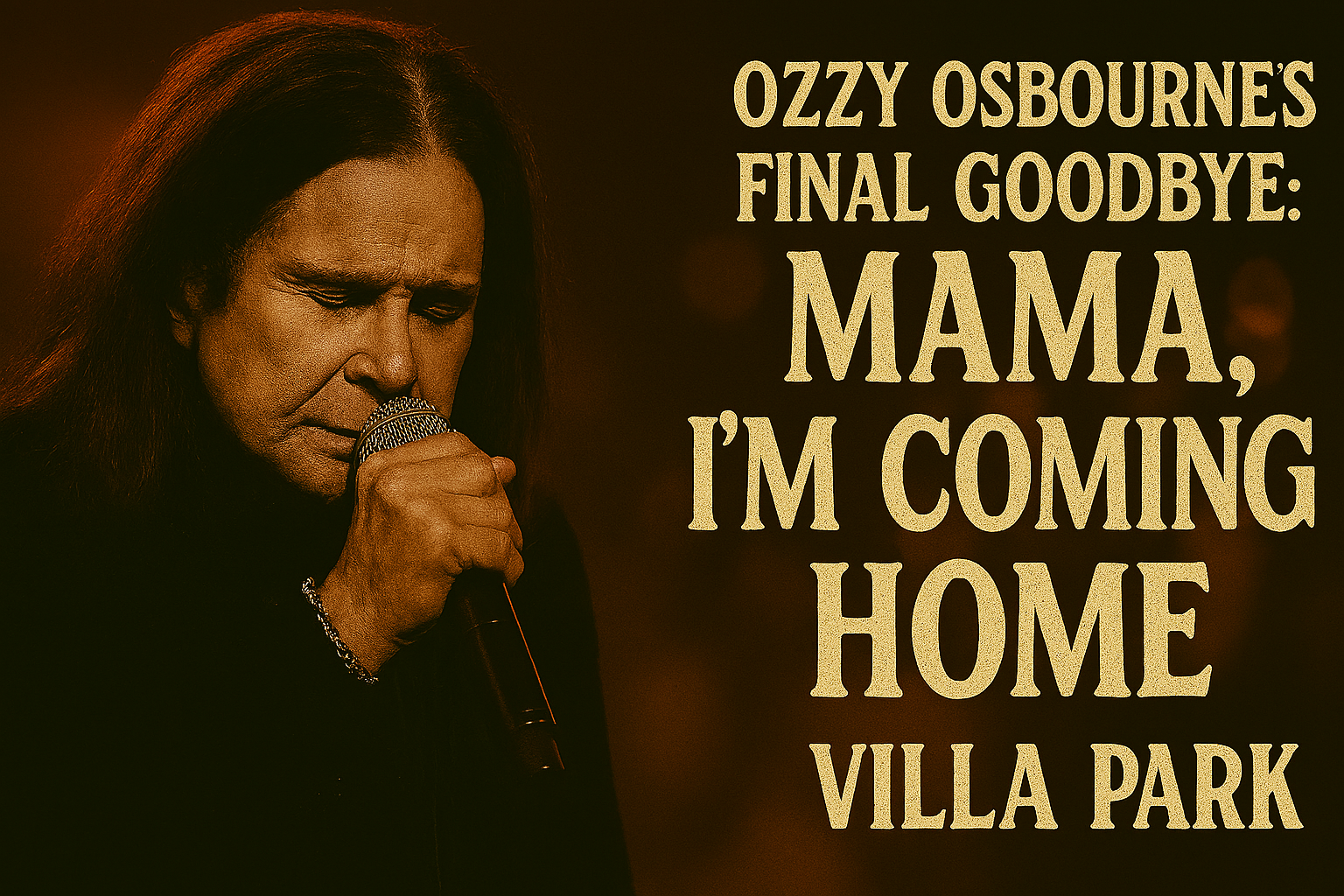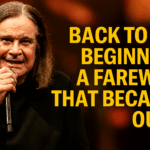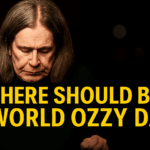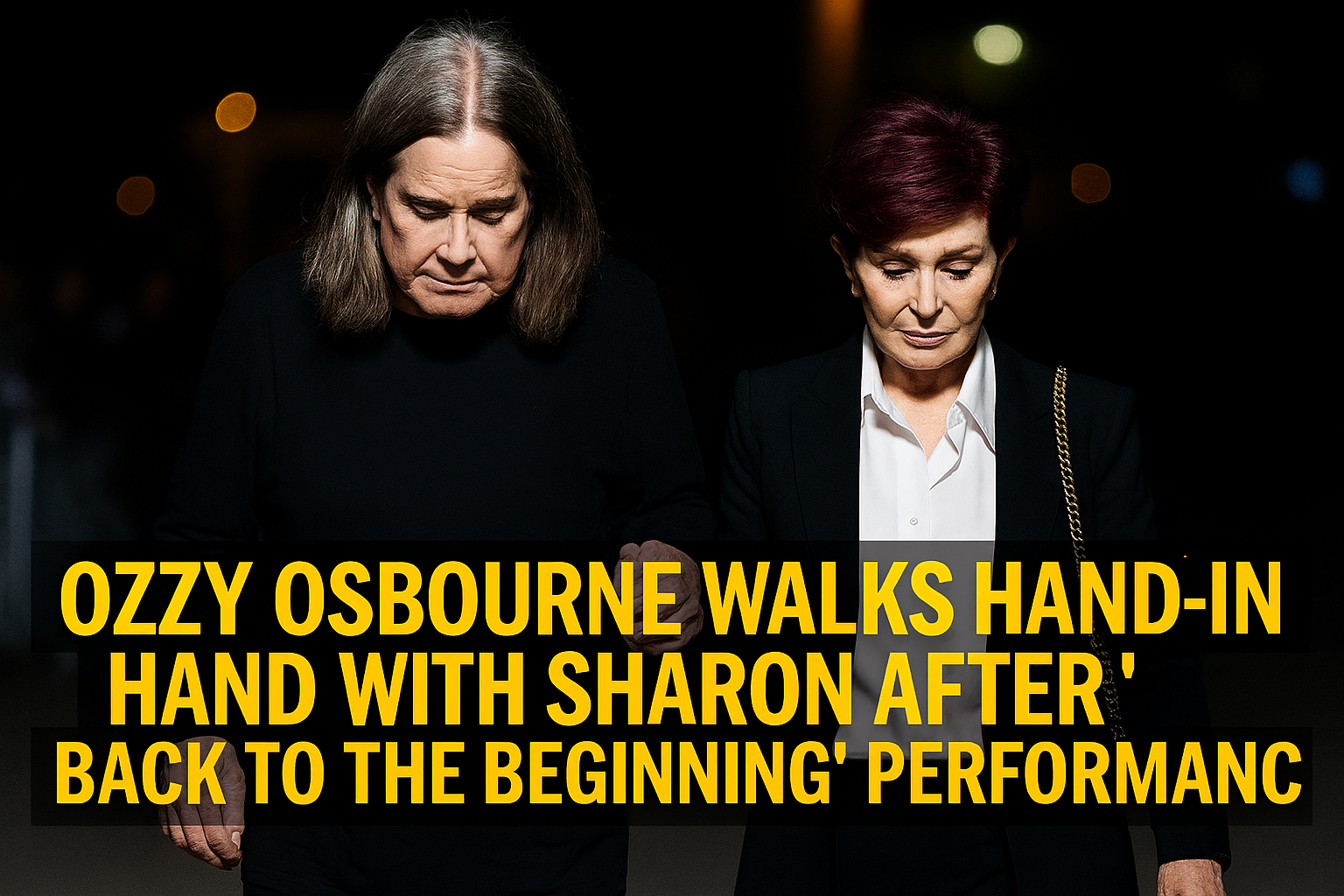Just one day after the news of Ozzy’s passing on July 22, 2025, fans across the globe are grappling with the emotional weight of his departure. In Radford, Virginia, a billboard appeared bearing a message that echoed the sentiment of his final performance: a tribute not only to his fans, but to his wife, Sharon Osbourne, the woman who stood by him through decades of chaos, triumph, and transformation.
The billboard’s message was simple yet devastating: “Mama, I’m Coming Home.” It referenced the song Ozzy famously dedicated to Sharon—a ballad that once promised return, loyalty, and love. But now, in the wake of his death, those words carry a deeper meaning. They’re not just lyrics—they’re a final goodbye. A promise fulfilled. A soul coming home for good.
Ozzy’s last performance of “Mama, I’m Coming Home” at Villa Park during the “Back to the Beginning” tribute concert was already etched in fans’ hearts. Seated on a gothic throne, weakened by Parkinson’s disease, he sang with raw emotion, his voice trembling but resolute. The lyrics—“I’m coming home”—felt like a farewell not just to Sharon, but to the music world, to the fans who had followed him from Black Sabbath’s gritty beginnings to his solo stardom.
The billboard in Radford captured that moment perfectly. It wasn’t flashy or loud—it was solemn, reverent, and deeply personal. It reminded everyone that Ozzy’s legacy wasn’t just built on riffs and rebellion, but on love, loyalty, and vulnerability. It was a message from a man who had given everything to his art, and who, in his final act, gave one last gift to the woman who had been his anchor.
Fans have flooded social media with tributes, memories, and reflections. Many are asking, “Why are we crying so hard?” The answer lies in the emotional truth of Ozzy’s journey. He wasn’t just a rock star—he was a survivor. He battled addiction, illness, and fame’s darkest corners, and through it all, he remained fiercely devoted to Sharon and his fans. His music was catharsis, rebellion, and connection. And now, with his passing, that connection feels heartbreakingly severed.
The grief is collective. For those who grew up blasting Sabbath in their bedrooms, who found solace in Ozzy’s chaos, who saw themselves in his vulnerability—this loss is personal. It’s the end of an era. The billboard in Radford is more than a tribute; it’s a symbol of closure. A reminder that Ozzy kept his promise. That he came home.
In interviews over the years, Ozzy often spoke about Sharon as his guiding light. “She saved my life,” he said more than once. “Without her, I wouldn’t be here.” And now, in death, he’s returned to her in the most profound way. The billboard’s message—“My time is done. I’m coming home—for good.”—isn’t just poetic. It’s real. It’s final.
And that’s why we cry. Because we know we’ll never see Ozzy on stage again. Because the next time we see his name in headlines, it will be in remembrance. Because the godfather of metal, the Prince of Darkness, has taken his final bow—and left behind a legacy that will echo forever.










